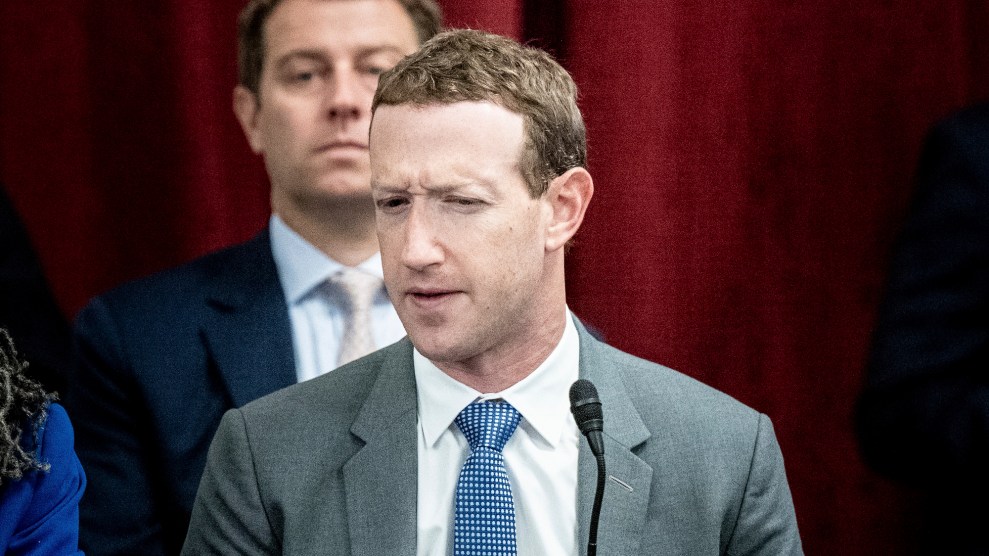
Mark Zuckerberg, CEO of Meta, at an artificial intelligence briefing for Senators at the US Capitol in September. Michael Brochstein/Sipa USA/AP
On Tuesday, 33 states filed a 233-page complaint against Meta and Instagram. The bipartisan lawsuit, in federal district court in California, alleges that Meta knew more about the mental health impacts of Instagram on teenagers—including addiction—than it had publicly acknowledged.
According to the complaint, Meta—which owns Instagram, Facebook, and now Threads—”created a business model focused on maximizing young users’ time and attention.”
Meta “has ignored the sweeping damage these Platforms have caused to the mental and physical health of our nation’s youth,” the complaint reads. “In doing so, Meta engaged in, and continues to engage in, deceptive and unlawful conduct in violation of state and federal law.”
In a statement, a Meta spokesperson said the company shares “the attorneys general’s commitment to providing teens with safe, positive experiences online, and have already introduced over 30 tools to support teens and their families.” The company, the spokesperson added, was disappointed “the attorneys general have chosen this path.”
Many experts agree that teens are experiencing a mental health crisis, with rising rates of depression and anxiety. In fall 2021, the American Academy of Pediatrics, the American Academy of Child and Adolescent Psychiatry, and the Children’s Hospital Association declared that worsening youth mental health had become a national emergency. Experts believe the causes are complex and that the crisis can’t be attributed to any single phenomenon. But US Surgeon General Vivek Murthy argues that social media has played a significant role, and he released an advisory on social media and youth mental health earlier this year.
“In early adolescence, when identities and sense of self-worth are forming, brain development is especially susceptible to social pressures, peer opinions, and peer comparison,” he wrote in the report.
Roughly half of teenagers use Instagram every day, according to data from the Pew Research Center, and teenage girls are more likely to feel excluded while on this platform than teenage boys. Many teens, regardless of the platform they used, also felt they would not be able to take a break from social media. A September 2021 Wall Street Journal investigation revealed that Facebook knew that Instagram, in particular, had negative impacts on girls—but the company allegedly did little to address the problem.
In public, Meta and Instagram have attempted to make their social media apps seem benign—a PR effort that includes assertions to lawmakers and to the media that these platforms aren’t harmful to teens. The states who filed the complaint argue that such claims are not only misleading, they’re dangerous.
“Through these and other public messages, Meta has intentionally created the false impression that its Platforms are safe for young users, and that Meta prioritizes safety over user engagement,” the complaint says. Other states are also expected to file their own complaints, according to Reuters.
















